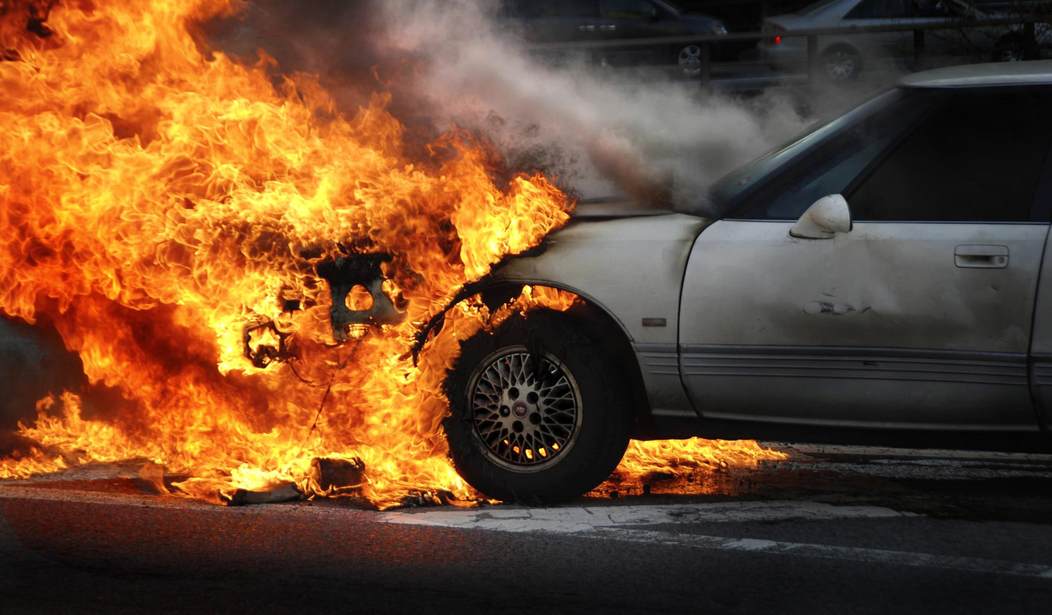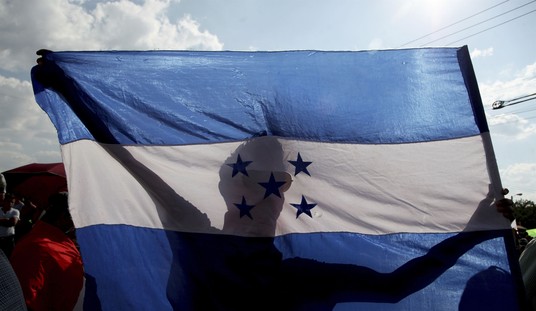On Monday, the French Ministry of the Interior reported that over 1,000 cars were burned in Paris and other French cities on New Year’s Eve.
“Gérard Collomb, Minister of State, Minister of the Interior, expresses his deep gratitude to the 140,000 police officers, gendarmes, soldiers, firefighters and rescue association staff for their commitment during the night of December 31st,” the ministry posted in a statement.
ℹ️ Bilan de la #SaintSylvestre : @gerardcollomb salue la mobilisation des effectifs de #secours et de #sécurité et apporte son soutien aux policiers et gendarmes blessés au cours d'interventions cette nuit pic.twitter.com/09xSROWyjE
— Ministère de l'Intérieur (@Place_Beauvau) January 1, 2018
Laughably, the statement went on to say, “Thanks to the very strong police presence … the New Year’s Eve festivities have been able to pass serenely for all the French.” It also described the evening as “smooth running,” as the arsons have become something of a “tradition.”
The report went on to explain what “serenely” meant:
However, as every year, we have seen a number of disorders: 1031 vehicles were burned, either directly or by propagation. If this number remains lower than 2012 (1193) and 2013 (1067) it is slightly higher than last year 935). These facts have
urban departments traditionally affected by this phenomenon. …510 people have also been arrested, in significant increase by compared to the last one (454 arrests in 2016). The same goes for the number of people placed in custody during the night (349 custody in 2017, against 301 in 2016).
At least 3 gendarmerie soldiers were wounded, and two police officers were attacked by violent protesters in Champigny-sur-marne.
France has long been plagued by such arson attacks, and not just on New Year’s Eve. In July, immigrants put 897 cars to the torch before and after President Donald Trump marched through Paris to celebrate Bastille Day. At the time, 368 people where held in police custody, and 13 officials and soldiers were wounded.
Burning cars has become a Bastille Day tradition, with 855 cars burned and 577 people arrested in 2016 and 951 cars burned in 2015.
While Muslim immigrants have been blamed for such unrest, a Swiss American suggested such explanations oversimplify the issue.
“These people are told they are French, they are French on the passport, but French society doesn’t view them as French,” the source explained. “It’s a conflict between the French state doctrine which says that French identity is based on common values of the republic and regular folks who say that French culture is linked to heritage.”
The areas where violence most broke out had higher migrant populations, but the source suggested these are mostly second- and even third-generation immigrants who have not yet assimilated into French culture. The underlying causes might be more cultural than religious, but Islamic faith and Middle Eastern cultural practices likely exacerbate the societal divisions.
Importantly, these arsons predate the large influx of immigrants from the Middle East in the wake of the Syrian Civil War. According to Britain’s The Telegraph, “The custom of setting vehicles alight on New Year’s Eve is set to have kicked off around Strasbourg, eastern France in the 1990s, in the city’s deprived, high-immigrant districts.”
The migrant influx remains a likely contributor, however. As Middle Easterners have flocked to Europe, an expansion in terror attacks has followed. This is not to say all or even most immigrants support such violence, but it should not be overlooked. In the rush to welcome such immigrants, Western multiculturalism has occasionally succumbed to barbarism, with a German judge ruling that a Turkish man’s forced violent sex is “culturally” not rape. Scandinavian countries like Sweden have turned a blind eye to incidences of rape following this immigration wave.









Join the conversation as a VIP Member